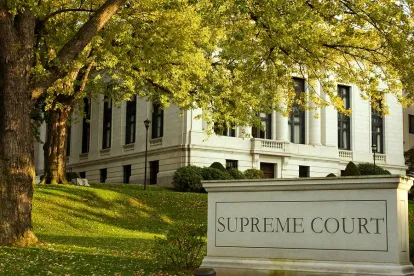In 1974, the U.S. Supreme Court decided in American Pipe & Construction Co. v. Utah, 414 U.S. 538, that the timely filing of a class action complaint tolls the applicable statute of limitations for all persons encompassed by that complaint. The impact of that ruling was that potential class members did not have to intervene as individual plaintiffs in the class representatives’ case unless and until the class ultimately was not certified (assuming the case remained pending at the time intervention was sought). Alternatively, as determined in later cases interpreting American Pipe, former class members can pursue their own individual claims rather than intervening in a former class action, even if their individual claim would otherwise be untimely.
American Pipe left unresolved whether a former putative class member can still pursue relief on a class basis after the statute of limitations has run on the underlying claim, or if the former putative class member is limited to bringing only his or her own individual claim. The Supreme Court answered that question on June 11, 2018 when it issued its unanimous opinion in China Agritech, Inc. v. Resh, 584 U.S. ___ (2018), in which the Court concluded that a putative class member cannot commence an otherwise untimely class action upon denial of class certification in the earlier-filed suit. His remedies are limited to promptly joining an existing suit or filing an individual action, but serial attempts at class certification after the statute of limitations has run are impermissible.
Resh was not an employment case, but instead involved three successive putative class actions brought on behalf of purchasers of China Agritech’s common stock, each alleging essentially the same violations of the Securities Exchange Act of 1934. Class certification was denied in the first of the three actions and it settled. Shortly thereafter, the lawyer in the first action filed a new complaint alleging nearly the same facts, but with new putative class representatives. Once again, the court denied class certification and the case settled. Plaintiffs’ counsel filed yet a third putative class lawsuit naming as putative class representative an individual, Michael Resh, who had not sought lead-plaintiff status in either of the two previous cases, but who would have been within the scope of the class had it been certified in either earlier case. There was no dispute Mr. Resh’s claim was untimely unless it had been tolled under American Pipe. The trial court dismissed his class claims as untimely but the Ninth Circuit Court of Appeals reversed, holding that the reasoning of American Pipe extends to successive class claims.
The Supreme Court disagreed and reversed, thereby resolving the Circuit split over the implication of American Pipe and its progeny on successive class litigation. The Court held that the “efficiency and economy of litigation” that supports tolling of individual claims until after class certification has been ruled on is not present where one seeks to litigate untimely successive class actions. Class certification is intended to determine early whether claims are better resolved individually or as a class, and whether certain putative representatives and their counsel are suited to represent the class’ interests. Class representatives who commence suit after expiration of the limitation period are not diligent in asserting claims and pursuing relief, for themselves or the putative class members. Therefore, the Court limited American Pipe to permitting only individual intervention or individual claim prosecution after the denial of certification of a class to which the individual otherwise would have belonged. In other words, although parties who were part of a proposed-but-ultimately-rejected class can bring claims after denial of class certification, they can only do so on their own individual basis, and not as a proposed class action.
Although a securities case, the Resh decision has (welcome) implications for employers. Should one or a group of employees seek certification of a class with respect to a particular employment practice, such as for employment discrimination affecting a broad class of workers or for alleged wage and hour violations, and should the motion for class certification be denied, the would-be class members must promptly move to intervene in the representatives’ non-class lawsuits or promptly file lawsuits on their own individual behalves, or else their right to proceed will be time-barred. The decision eliminates the uncertainty – the “endless tolling of a statute of limitations” – that employers would face if plaintiffs’ lawyers could continually refile putative class actions related to the same policy or incident notwithstanding the statute of limitations having run, until they define the class sufficiently well or find adequate representatives such that the trial court grants class certification. After Resh, once the statute of limitations on a claim has run, so too has the threat of further class action litigation.




 />i
/>i

